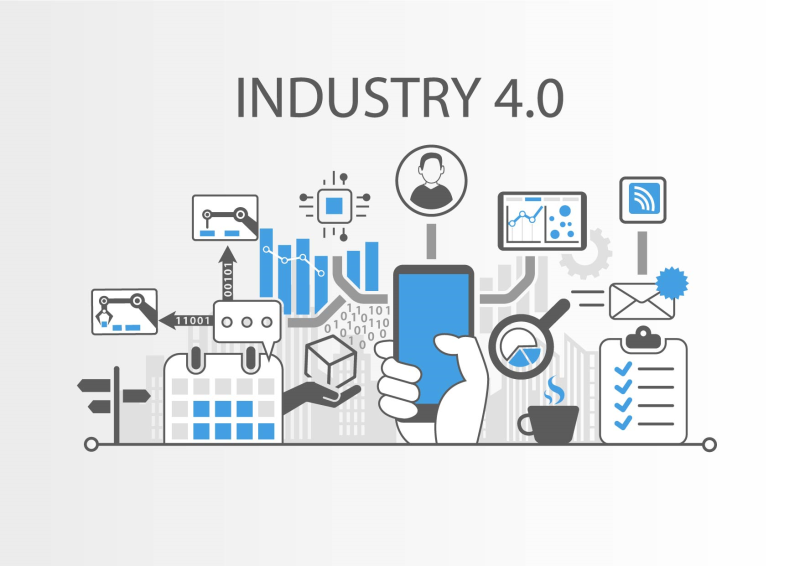 The term ‘Industry 4.0’ has quickly become the “hot topic” across industry, but is it actually understood, and is it being implemented correctly? Steve Askins, UK engineering director at ERIKS UK & Ireland, offers some practical guidance to help you cut through the hype and get the most from the fourth industrial revolution.
The term ‘Industry 4.0’ has quickly become the “hot topic” across industry, but is it actually understood, and is it being implemented correctly? Steve Askins, UK engineering director at ERIKS UK & Ireland, offers some practical guidance to help you cut through the hype and get the most from the fourth industrial revolution.
Ensuring as much of your workforce as possible understand the benefits of Industry 4.0 will be integral to its correct implementation. Particular attention needs to be paid to senior employees who will lead the way. According to our research, over 55’s are less likely to fully understand the benefits of Industry 4.0 than their younger counterparts, and are particularly sceptical around the subject of sharing data. With the older generation of engineers being instrumental in the deployment of Industry 4.0, a good support structure and strong internal messaging from the top down is paramount.
Swap out reactive for proactive maintenance
Implementing preventative and predictive maintenance practices, such as condition monitoring, is an ideal first step into Industry 4.0, and one that could immediately demonstrate improved operational efficiency and reduced downtime. Companies should be investing in the technology needed to adopt these maintenance techniques, which could be as simple as applying sensors to a piece of equipment, or even a hand-held tool.
Invest in training
Realising the benefits of Industry 4.0 is half the battle, but knowing how to implement it is often the biggest barrier to tackle. Investing in training and education opportunities to improve skills in and knowledge of Industry 4.0 is essential and can be done in partnership with a specialist training provider, as well as in-house.
Don’t be afraid of data sharing
Reaping the rewards of Industry 4.0 is largely dependent on sharing data with third party maintenance suppliers or OEMs, which will facilitate correct data analysis and more progressive maintenance practices, such as remote condition monitoring. The impact of not sharing data can be huge, particularly if you lack the skills in-house to analyse that data effectively. Manufacturers can quickly find themselves relying on reactive maintenance to keep operations running, which is both inefficient and costly.
To give you peace of mind, be sure to invest in solid IT infrastructure that incorporates the latest security software. Make sure that this is updated frequently. You may even wish to conduct a security audit once a year to ensure that your systems are fully-functioning and responsive to the latest cyber-threats. For best practice, generate an open and collaborative relationship with your OEMs and third-party suppliers to ensure that your network is fully protected, end-to-end.
Partner with an expert in data monitoring and interpretation
Using data and technology correctly will be crucial to improving operations and industrial maintenance practices in line with Industry 4.0, but this will often require the support of an OEM or third party supplier. Integrating sensing systems with the support of a partner will ensure that you generate the data you need. The added benefit of working with an expert in this field is that they can analyse the data for you to help provide insight into your process efficiency, as well as helping you to proactively monitor machine problems.
A recent survey conducted by ERIKS revealed that many manufacturers in the UK have yet to implement Industry 4.0 practices, largely due to concerns over security, skills and available resources. First steps into this area needn’t be strides into the unknown, and taking on board the considerations above will help your business to adapt before taking the final plunge.
ERIKS’ white paper, ‘Is the UK ready for Industry 4.0? Industrial maintenance in a connected world of Big Data’, is now available to download here.




